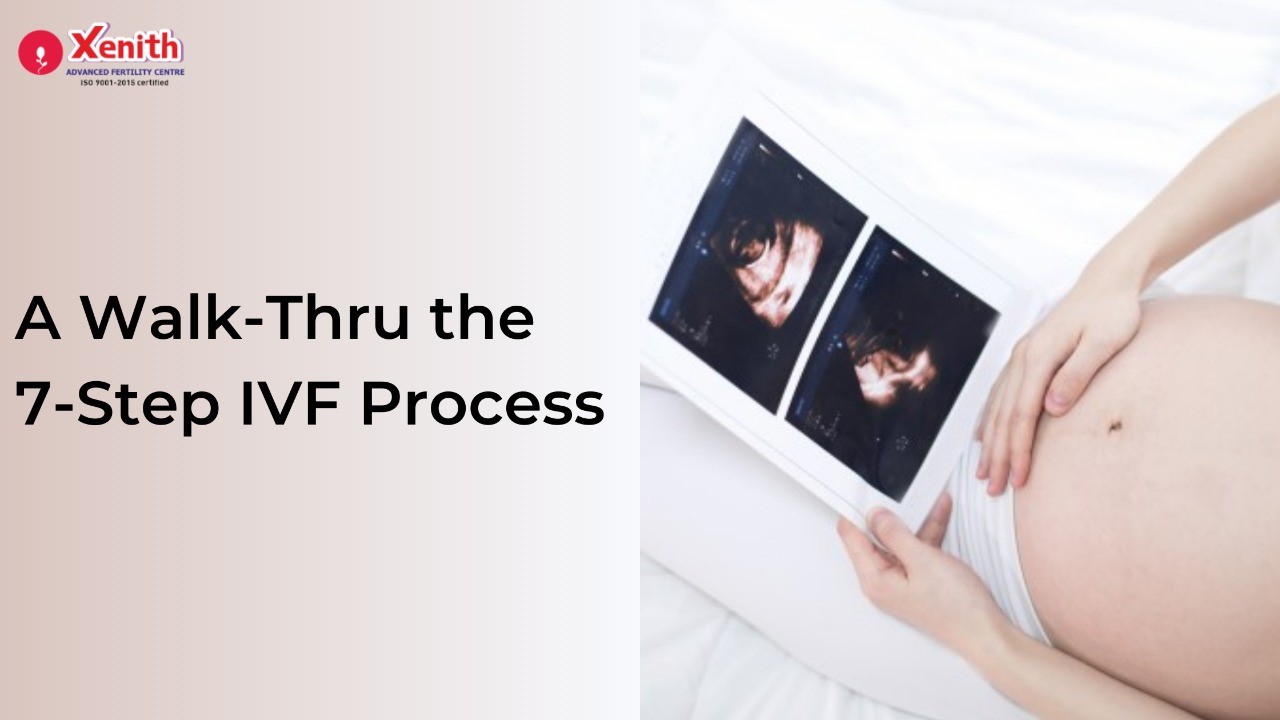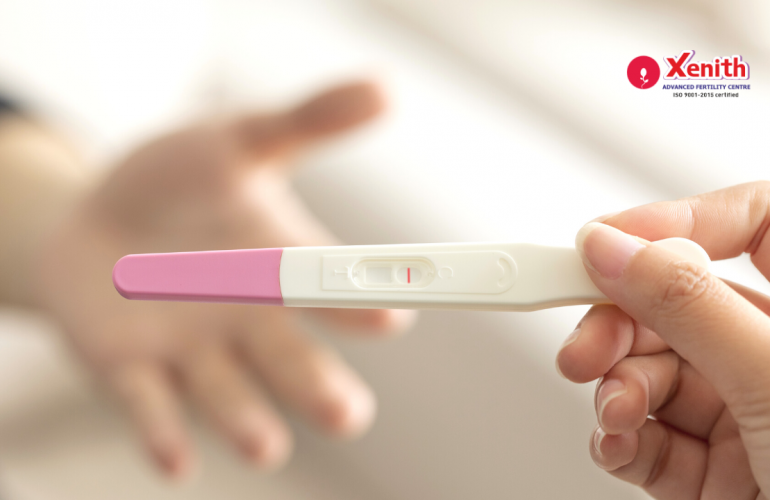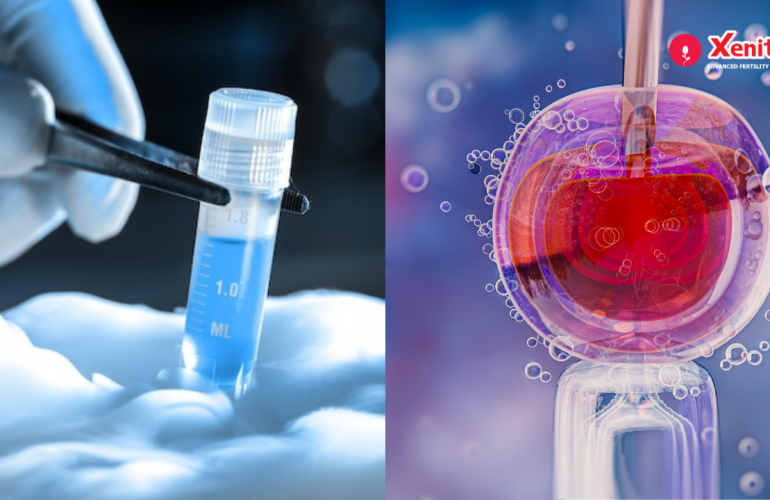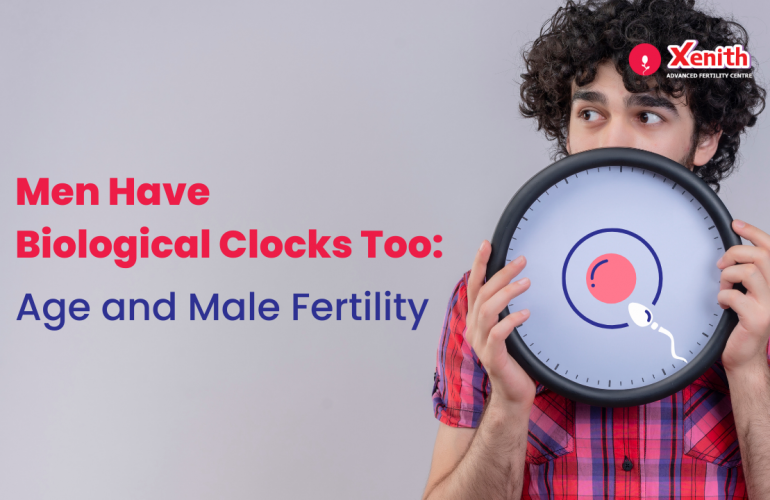A Walk-Thru The 7-Step IVF Process
If you are considering IVF treatment, you might know a few things already. For instance, you probably know the basic idea of IVF – that an egg and sperm are united outside the uterus, in a test tube. You’ve probably done your homework and figured out the general costs involved and how successful IVF treatment can be, which is why you are here. Now you want to understand a little more about the process of IVF. What do you have to actually go through? Is it hard, is it long, will you be able to cope? This article will guide you through the entire process step-by-step.
Every woman’s IVF journey is different but there are certain protocols or steps that are generally followed in every IVF clinic. Knowing the different steps or stages of the IVF process can help you feel more informed. Being armed with information is likely to give you a sense of being more in control. This is why we’ve put together a brief introduction on the 7 steps of the IVF procedure.
Step 1: Consultation
The first step starts with a consultation with an IVF fertility specialist. We may ask you to undergo several tests before diagnosing the problem that prevents you from conceiving. It would be preferable if both husband and wife were present in this initial consultation.
Step 2: Pre-cycle testing
Basic diagnostics will be conducted and these will form the baseline of the IVF process. We will evaluate your hormone levels (particularly hormones to assess ovarian function), assess thyroid function, ovarian reserve, quality of eggs, and screen both partners for any sexually transmitted infections. A semen analysis will be conducted. The ultrasound will a ascertain the size of your ovaries and check for any cysts. We will also examine your uterus and fallopian just to make sure there are no problems there that require surgical attention.
Step 3: Ovarian stimulation
Fertility drugs will be given to stimulate the ovaries to mature multiple eggs for egg retrieval. These drugs are usually injected and you will be monitored using hormonal testing and vaginal ultrasounds for the best result. The doctor is looking for a sufficient number of large enough follicles and the right level of estrogen. Once this is achieved you will be given a trigger shot of hCG and other medication which will spur the final stage of egg maturation. Only mature eggs are capable of being fertilized.
Usually 10 to 12 eggs can be retrieved after an average of 10 to 11 days, in a normal responding woman. Not all eggs may be viable to use for the IVF procedure. Generally, two-thirds of the eggs will have the appropriate maturity needed for IVF procedure.
Level of pain at this stage: The over stimulation of the ovaries may cause a feeling of fullness or pressure which may last a couple of weeks.
Step 4: Egg retrieval
Eggs are removed before the eggs ovulate. Egg retrieval generally happens 34 to 36 hours after the trigger shot of hCG. A surgical procedure, conducted under sedation, will remove the eggs from the follicles in your ovaries. An ultrasound is used to visually guide a small needle into each ovary. Once the needle is inside the follicles the follicular fluid is gently sucked along with the egg. Each egg is collected in a test tube. The entire procedure takes less than 30 minutes.
Level of pain at this stage: On the day of the procedure some women experience minor cramping. This pain usually goes away the next day.
Step 5: Fertilization
An embryologist will determine the maturity and quality of each egg and choose the healthiest to transfer into a special culture medium kept in an incubator. The egg is fertilized with sperm within a few hours after retrieval.
The sperm used can be retrieved through conventional methods as from a semen sample or in certain indicated cases from the testis. The fertilization is done either by IVF process or via intra-cytoplasmic injection (ICSI). The latter method is usually used when sperm quality is poor. ICSI method injects one sperm into the egg. The conventional method is when sperm is placed in the culture medium containing the egg and the sperm is allowed to enter the egg on its own. After 18-22 hours, the embryologist checks the newly formed embryo and these are then cultured in the lab for three to five days and the embryo is chosen and then transferred to the woman’s body.
Step 6: Embryo transfer
The embryo transfer usually takes place 3 to 5 days after an egg retrieval. If genetic testing is to be done before the transfer then a biopsy is conducted at the blastocyst stage and the cells are sent for genetic testing. In the meanwhile, the embryo will be frozen in the IVF lab. After the genetic testing shows a good report the embryo is chosen, thawed, and transferred into the uterus. A preimplantation genetic testing is only required in certain cases and is not indicated in every patient.
A thin, flexible catheter is used to transfer to the embryo. The ultrasound will guide the embryologist so that the embryo is placed in the best location for implantation. If all goes well, the embryo will continue in the uterus and implant in the uterine lining within a few days after the transfer.
Unused embryos are usually frozen to use if this cycle is not successful. If the cycle is successful, couples may want to use the frozen embryo for a second child.
Level of pain at this stage: This procedure is not painful and has been compared to getting a pap smear.
Step 7: 14-day waiting and then the pregnancy test
After the above procedure there is nothing more to do but to relax and enjoy the time knowing that your baby is growing inside you. After 14 days, a pregnancy test is conducted. If there is a pregnancy, you will be observed for 9 to 10 weeks. You will then come under the care of an obstetrician as would any woman who is pregnant!
Supportive Care at Each Stage of the IVF Process
Apart from high-quality care with the best of doctors who are well-qualified in their field of reproductive health, all our clients will find supportive care to help you through each stage of the IVF process. Xenith Advanced Fertility Clinic continues to be the best-in-class fertility clinic in Pune highly recognized for its achievements and IVF success rates.




